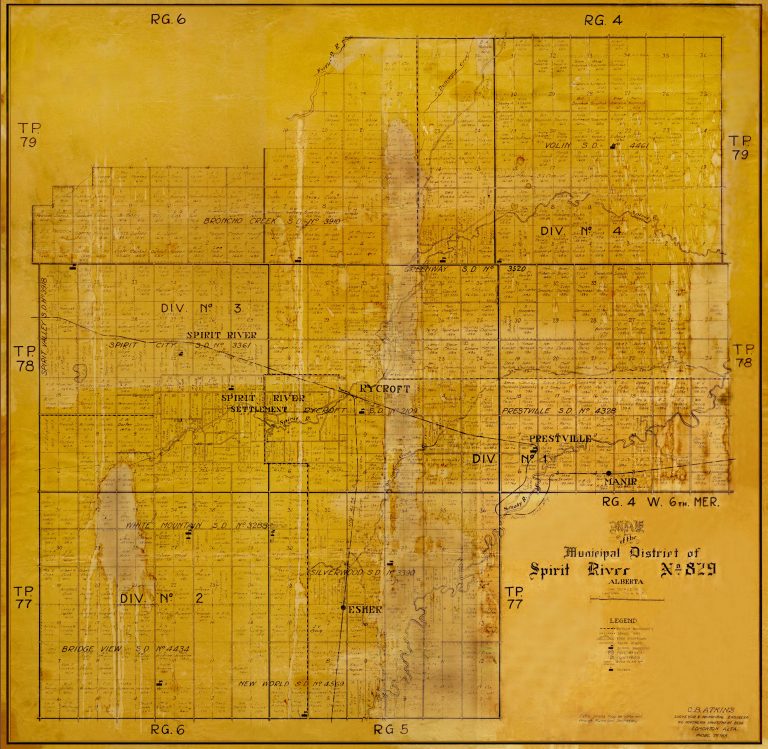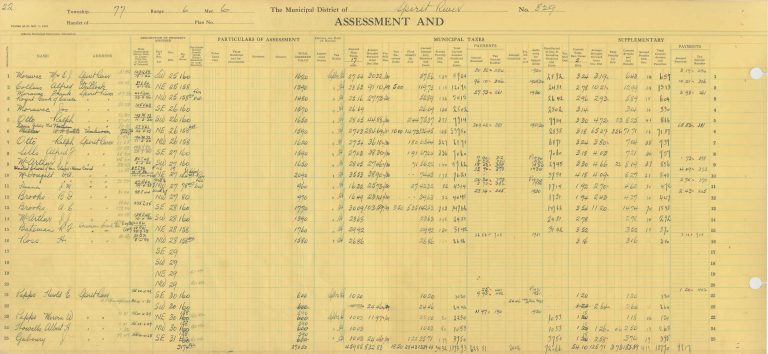

The South Peace Regional Archives receives research requests from all corners of the region and the globe, all with a wide variety of goals. Some researchers are trying to trace their family tree, while others are looking for the history about their land: who owned a property when, or other individualized requests. We also receive requests from Museums and cultural institutions looking to add context to their displays, businesses wanting to use historical records in their stores, or community groups wanting to learn more about their origins. While visitors must complete their own research, Archives staff are able to provide support by informing them on archival practices or directing them to available resources.
One recent request came from the Spirit of Peace United Church, located in Spirit River. The Church board was interested in learning more about their early presence in the community. To aid their query, we provided links to tax records, access to land ownership databases, and scanned copies from community history books. Artifacts like tax records are extremely valuable resources for researchers to facilitate them learning when an individual or organization existed in a community. Similarly, immigration records can pin down when someone arrived from another country or what their occupation was. Land ownership records can show the change of ownership over the years. Together, these records can provide any researcher with a solid start.

Many research requests can be started by accessing our numerous databases. There you can search for surnames, soldiers, community names, immigration records, and more. These databases are massive physical collections of newspaper clippings, tax records, land ownership records, maps and community history books, that have been made accessible to the public through countless hours of volunteer transcription and staff uploading all the data into searchable databases that are available 24/7 on our website.
What will you discover? If you have a research request that you think may be answered by archival records, don’t hesitate to reach out. But before you do, visit our using our website page and our inquiries page to learn how you can make the most of your research time!
